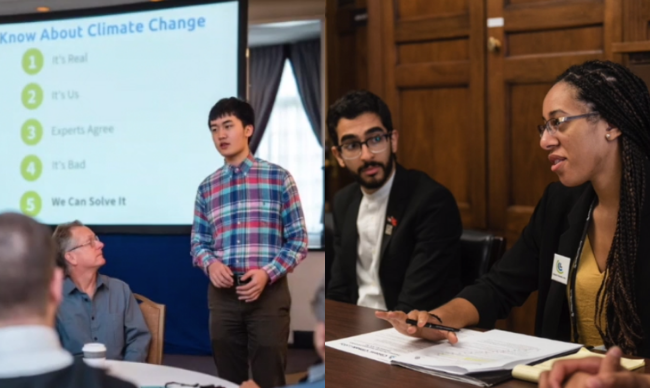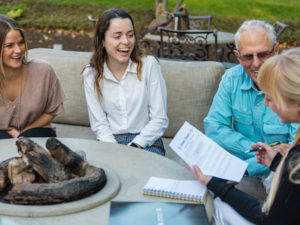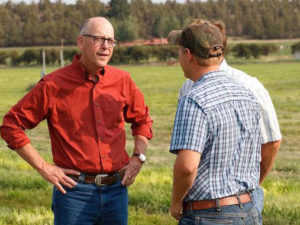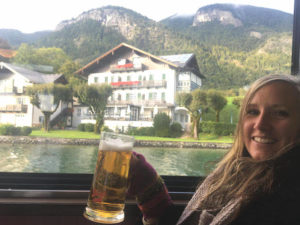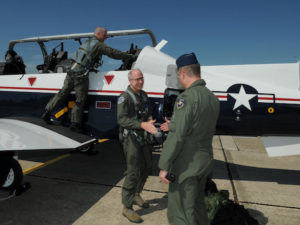Focusing your grasstops outreach effectively
By Claire Squire
We’ve all heard about “grassroots” in politics: ordinary citizens who want to promote a cause. So what exactly are grasstops? In this Citizens’ Climate University webinar hosted by Volunteer Education and Engagement Coordinator Brett Cease, learn more about what grasstops engagement is, and how to focus your outreach for the best results.
What are grasstops?
Brett defines the grasstops as “people in the community that have many possible connections—often large employers, figureheads in terms of faith backgrounds, or representatives in city or local government—and have a large footprint within that community.” Outreach to these influential individuals or groups can be key in convincing your member of Congress to support the Energy Innovation Act. This training teaches strategies to focus your outreach, save time and highlight persuasive voices. For example, chambers of commerce are often key players in local economies and are typically more influential than small shops.
Successful research strategies
There may be lots of these grasstops people and organizations in your community. How can you tell which will be most important to your member of Congress and which you should focus on building relationships with? First, start by learning more about your member of Congress (MOC). Stephanie Doyle, CCL’s Director of National Outreach and Partnerships, outlines three main areas you should research.
Legislative profile: Research where your MOC stands on party issues, which committees they serve on, their level of party leadership, and which issues they are passionate about. Much of this information can be found in the MOC bios CCL provides in Community. To learn how to find those congressional bios and what info they include, check out this clip:
Personal profile: To understand a Congress member a little more deeply, consider researching their religion, college, profession before entering politics, and clubs or interests. Who does your MOC listen to?
Relational network: Do any volunteers in your CCL chapter have connections with your MOC’s spouse, children, relatives, or peers? Reminder: be respectful of their privacy.
After gathering all of this information, map connections between chapter members and grasstops. You may want to do a quick survey of your group to see if there are existing connections, which can provide a starting point to strengthen a grasstops relationship. To maximize your success and efficiency, have a system for organizing information, such as a spreadsheet or Word document. By keeping track of who reaches out to who, your chapter can ensure follow-up and lasting engagement with grasstops. For more tips on mapping connections, check out this clip:
Focusing research on businesses
As Stephanie notes, volunteer knowledge about their district or state is a key asset. Start by determining the biggest local employer in your district, preferably one impacted by climate change. For example, in Western states like Utah, the highly lucrative ski industry is hard-hit by climate change and often provides essential grasstops support. Some industries are not currently feeling the brunt of climate change but are projected to experience impacts, so be creative when researching potential supporters.
Success story
In Asheville, North Carolina, the brewing industry has not only invigorated the tourism industry, but also the grasstops efforts of local CCL volunteers. Steffi Rausch, who leads the Asheville chapter and co-leads CCL’s Grasstops Engagement Action Team, recalls her chapter learning that their MOC is the Vice Chair of the Small Brewers Caucus. “After looking at his committees and caucuses, we strategically decided to target endorsements from the breweries,” Steffi explains.
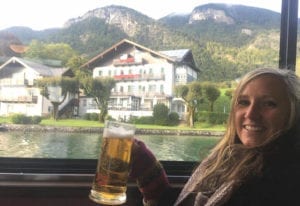
Steffi Rausch
The team determined which Asheville breweries are most influential, but started with smaller companies, working their way up. Volunteers found that the first few were hardest, but once they obtained a few endorsements, other brewers in the tight-knit industry began voicing their support as well. As grasstops endorsements increased, one of the brewers set up a meeting with the congressman, CCL volunteers, and endorsers at a brewery, where they talked for an hour about climate impacts on the brewing industry, in what Steffi describes as “by far the best and longest” meeting to date. The chapter’s next target? The banking and insurance industry. After all, their MOC is the ranking member of the Financial Services Committee.
Messengers matter
It is important to keep in mind that many districts have specific industries that enable the area to thrive. When these influential business owners are brought to the table, they bring with them immense persuasive power. That’s why grasstops engagement work is so worthwhile. As Southeast Regional Coordinator Don Addu notes, “The more you can bring in those types of voices, the stronger your voice will be.”
For more grasstops resources, check out these sites:
- CCL’s Grasstops Engagement forum provides a space to ask questions and brainstorm with other CCL volunteers
- CCL Community contains training modules and resources for grasstops engagement
Claire Squire is an intern with CCL’s Communications team and a second-year Environmental Management student at Indiana University.

